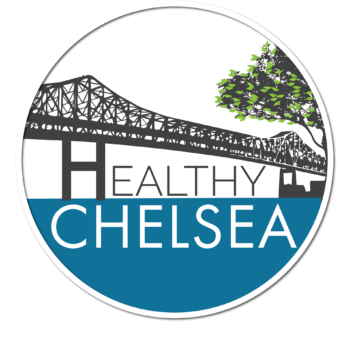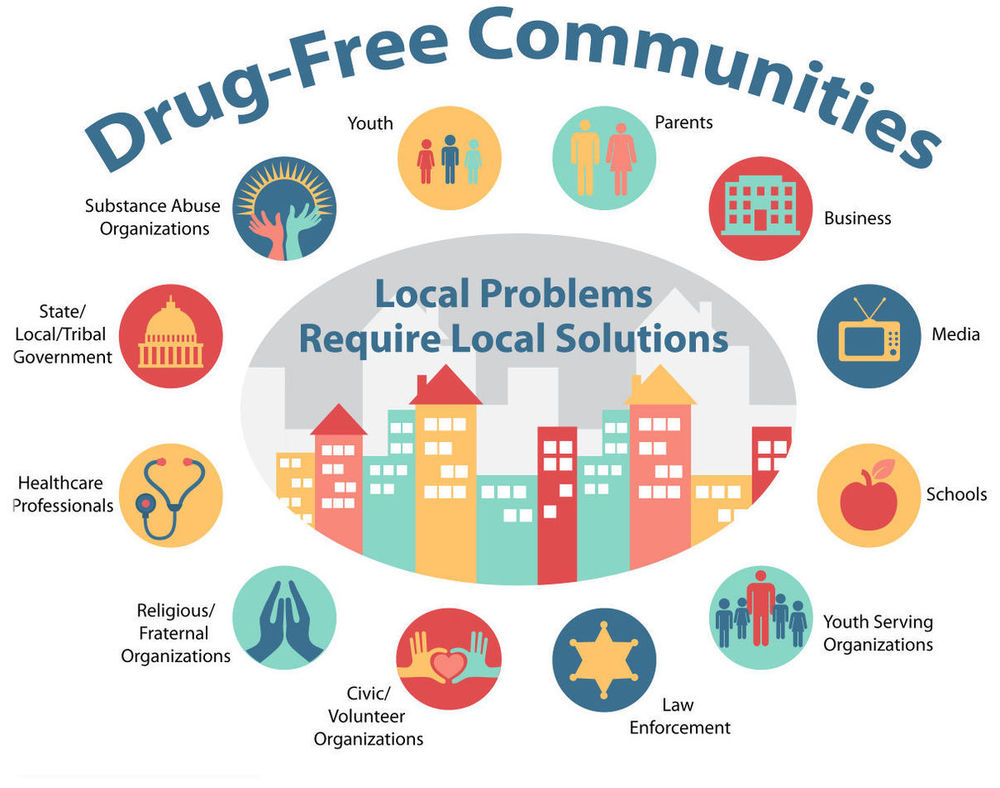Preventing Substance Use in the Community
In response to the devastating impact of opioid addiction and rising overdose rates, the Chelsea community has resolved to implement proven strategies to prevent substance use disorders, improve access to care and treatment, and increase public safety.
The need for prevention has never been greater. Studies show that the earlier in life a young person starts using alcohol or other drugs, the greater their lifetime risk of misuse or addiction. We also know that early intervention is vital for youth. Every year that substance use is delayed while the adolescent brain develops, the risks of addiction and substance misuse decrease. Our youth substance use prevention work is supported by the Center for Disease Control and Prevention Drug Free Communities (Chelsea) and the Bureau of Substance Addiction Services MassCall 3 (Chelsea, Revere, and Saugus) grants. Our goal is to build support around prevention efforts so that they can be sustained through changes in local policy, practice, and systems.
Drug Free Communities Grant
In October 2017, Healthy Chelsea was awarded a Drug-Free Communities (DFC) grant, the nation’s leading effort to mobilize communities to prevent youth substance use. This funding has been vital to expand the coalition’s work to implement effective, evidence-based, and community-wide prevention strategies. The focus is on primary prevention and early intervention strategies that will interrupt the cycle of initiation and escalation toward using more harmful and addictive substances. This work is being coordinated by Yasmine Hung.
Goals:
- Establish and strengthen community collaborations to support prevention efforts.
- Reduce substance use among youth (18 years and younger) and, over time, reducing substance use among adults.
Collaboration:
- The DFC model includes active participation from at least 12 sectors of the community: youth, parents, law enforcement, schools, businesses, media, youth-serving organizations, faith-based organizations, civic and volunteer groups, healthcare professionals, state, local and tribal agencies, and other organizations with expertise and involved in reducing substance use.
Strategies:
- Addressing risk factors (e.g., misperceptions about substances, availability or easy access, lack of school connectedness, mental health issues)
- Promoting protective factors (e.g., family engagement, mentorship of trusted adults, strong academic support, out of school time programs).
Highlights of activities:
70 direct information sessions for youth, parents, caregivers, school staff, and community members (presentations in health classes in middle and high school, parent forums, workshops)
53 youth education and training sessions (collaborations with local Boys and Girls Club, La Colaborativa youth programs, high school and middle school after school programming)
13 special community events (Back to School, Parent Nights, Coffee Hours, National Night Out, Chelsea Day)
15 alternative drug-free events that foster connection among peers and sense of belonging to community (Self Care Fair, soccer tournaments, volleyball and basketball drop-ins)
In August 2022, Healthy Chelsea was again a recipient of the DFC grant, one of over 700 grants awarded to community coalitions in this year. For the next five years, we will continue investing to ensure our youth and the community that supports them have the knowledge, skills, and access to opportunities and resources to reduce the risks of engaging in substance use.
Youth coalition: Our youth coalition is called Teen Action Project (TAP) and is made up of Chelsea High School students, grades 9 through 12. Recognizing the fundamental concept that local problems require local solutions, youth are intentionally involved to share their perspectives on the youth use of alcohol, nicotine, cannabis and other substances among their peers in Chelsea.
Read more about how Chelsea youth are engaging with this work.
MassCALL3
In April 2021, the city of Chelsea was awarded the MassCALL3 youth substance use prevention grant, a BSAS-funded statewide effort to reduce substance misuse through regional collaboration. An agreement with the city saw Healthy Chelsea take on the supervisory role of the grant, helping to lead alongside fellow regional partners in Revere and Saugus. The grant utilizes SAMHSA’s evidence-based Strategic Prevention Framework (SPF), to conduct an assessment, build capacity, plan and implement strategies and evaluate those strategies to prevent misuse of substances of first use (alcohol, nicotine, cannabis) among youth. This work is being coordinated by Ryan Barry.
Goals:
- Build and maintain strategic regional partnerships to support coordinated, community-wide approaches to substance misuse prevention efforts through policy, practice, systems, and/or environmental changes
- Coordinates and implement community-wide efforts to prevent and reduce youth substance misuse issues and their underlying causes
Collaboration:
The grant’s core partners with each community include
Chelsea
- City of Chelsea Health and Human Services Department
- Healthy Chelsea
Revere
- City of Revere Public Health Division
- RevereCARES Coalition
Saugus
- Youth and Recreation Department
- Saugus Public Schools
- Town of Saugus
MassCALL3 looks to engage with any and all willing stakeholders across the 12 sectors of the community, and maintains several working relationships within each community such as schools, youth groups, first responders, health providers, wellness committees, and other youth providing organizations
Strategies
With an estimated eight-year grant life, MassCALL3 currently enters year three ready to select a regional substance use prevention strategy.
- Year one, between July 2021 and June 2022, featured a massive regional assessment to research the state of youth substance use prevention. In total, 10 stakeholder interviews and 16 focus groups were held across the region to gather qualitative information on youth substance use trends. In addition to this data, youth risk behavior surveys in all three communities for both middle and high school aged students were conducted to gather quantitative data.
- Year two, between July 2022 and June 2023, featured a capacity building plan to review the assessment data and plan out a path for strategy development. Meeting with stakeholders throughout the year, along with regional planning meetings, an array of partners came together to discuss which efforts should be put forth to help reduce substance use.
- Year three, once strategies are decided, will usher in an evidence based model for addressing whichever efforts the region decides to focus on.
Grant Highlights
- MassCALL3 programmatically supports youth groups in each community, such as the Teen Action Project (TAP) in Chelsea, the Youth Health Leadership Council in Revere, and the Peer Leadership group in Saugus.
- With support of these youth groups, as well as different parent groups, the grant has helped to put on or support different community events around mental health and substance use. The grant has helped support self-care fairs for each of the three communities high schools, seeing over 600 students attend these events. The grant has also put on parent education nights around vaping prevention in all three communities.
- The grant continues the work of the Substance Abuse Prevention Collaborative (SAPC) grant that served the same communities. SAPC’s main strategy was a social marketing campaign titled “Escape the Vape,” whose primary mission was to share information about the dangers and harms of vaping for middle and high school aged youth. This effort saw close to 3,000 students in the region receive education on this subject matter.



